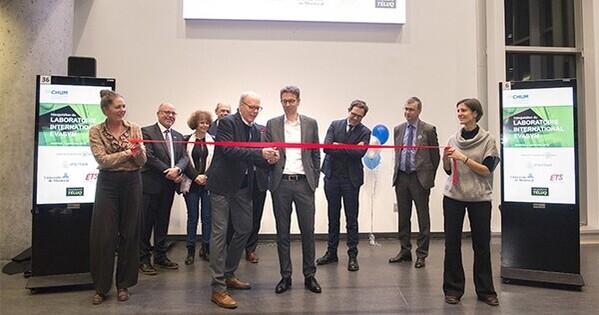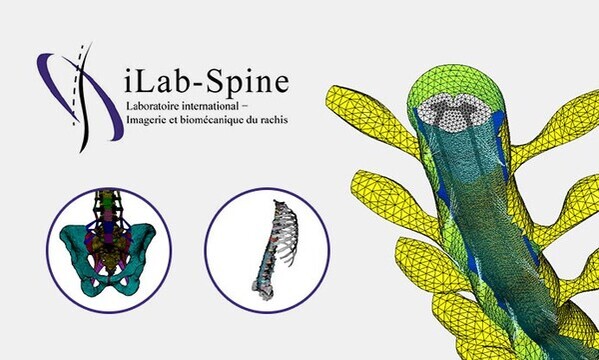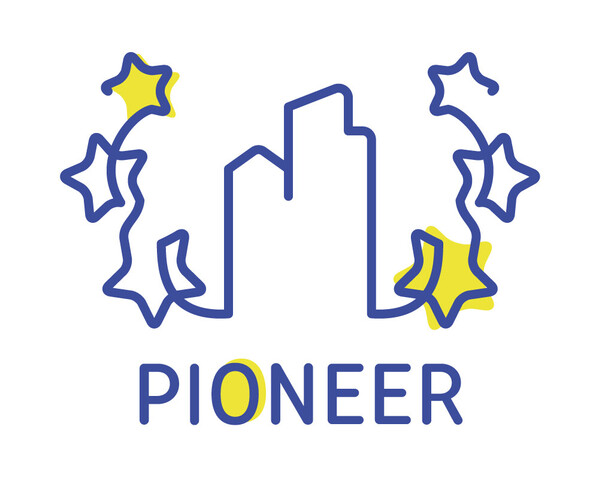European and international partnerships
Université Gustave Eiffel has signed over 350 partnership agreements with higher education and research establishments worldwide, including 17 structuring partnerships: 1 European alliance, 3 international institutes, 6 Associated International Laboratories (AIL), 2 International Research Projects (IRP-CNRS), 2 International Research Networks (IRN-CNRS) and 3 international hubs.
International collaboration opportunities
For further information, please contact us:
- For training-related cooperation: International Relations Department
international@univ-eiffel.fr - For research programmes: European and International Cooperation Department
appui.international@univ-eiffel.fr
European alliance
The PIONEER Alliance is a European network on the city, spearheaded by the Université Gustave Eiffel, made up of 9 complementary universities and an associate partner in the social and engineering sciences, all offering courses related to the cities of tomorrow:
- University Institute of Lisbon (ISCTE-IUL, Portugal)
- University of Applied Science (LAUREA, Finland)
- University of Applied Sciences (TH Köln, Germany)
- University of Žilina (UNIZA, Slovakia)
- Université Gustave Eiffel (France)
- University of Applied Sciences (AVANS - Netherlands)
- University of Huelva (Spain)
- University Tomas Bata (ZLIN - Czech Republic)
- University of Venice (IUAV – Italy)
- University of Applied Sciences (Bern - Switzerland) Associated partner
The aim of the PIONEER Alliance is to co-create and develop a unique European educational facility, building on the strengths of the partners, with a focus on cities of the future, and covering the following 6 areas:
- Civil engineering for carbon-neutral urban areas
- Safety, security and risk management for resilient cities
- Technology-enhanced solutions for smart cities
- Designing services for future sustainable cities
- Sustainable urban living and tourism
- Circular economy for city dwellers
With this global learning and innovation model, the PIONEER Alliance links activities and players across Europe to develop and mobilize a new generation of learners, knowledge producers and entrepreneurs for future cities and societies.
Universities and associated cities bring together the relevant players and create an ecosystem that acts as an incubator for the engagement of European citizens, seizing the opportunities and meeting the challenges of future cities, with a view to 2030.
The PIONEER Alliance universities train altogether over 130,000 students with more than 16,000 faculty and staff members on 34 campuses.
International institutes
Since January 2021, Université Gustave Eiffel has been one of the operators of the Franco-South-African cooperation F'SATI, an institute located in South Africa in Pretoria and Cape Town at two partner universities, Tshwane University of Technology (TUT) and Cape Peninsula University of Technology (CPUT).
Université Gustave Eiffel is also responsible for the F'SATI Cooperation and Development Department, with the following objectives:
- On the one hand, to continue to ensure the university's presence in the cooperation, including its attendance of the institute's Board of Directors meetings,
- On the other hand, to support and to further develop this cooperative institute by encouraging visits by researchers/teachers between the institutions, to increase student exchanges, mainly at master's and doctorate level, and to set up joint training courses at master's level and co-tutored theses at doctorate level.
This is a transforming mission for the university, through its involvement in a structured partnership with universities in sub-Saharan Africa. This partnership involves the International Vice-Presidency in supporting the development of joint projects between the two countries as well as in the internationalization of training courses.
The Institut des Amériques is a scientific interest group (SIG) created in 2007 acting as a higher education, research and international cooperation network, involving Latin America, Central America and the United States.
It brings together some 50 French higher education and research institutions. Université Gustave Eiffel is a member of this network which federates Humanities and Social Sciences (HSS) studies on societies of the Americas, promoting different scientific approaches from a comparative, trans-American and transdisciplinary perspective. The institute promotes intellectual exchange at national, European and international levels on the major research issues affecting the Americas, in over 20 disciplines.
Université Gustave Eiffel and The German Aerospace Centre (DLR) have joined forces to create the INNOMOB research institute. This institute covers two different areas.
INNOMOB1 is characterized by a shared, long-term scientific programme focusing on innovation issues for mobility and transport in Europe. The work carried out is structured around 4 axes:
- Analysis of trends in the mobility of people and goods;
- New data or new data collection methods for mobility analysis;
- New planning methods to promote more sustainable mobility;
- Technological innovations and new forms of mobility: what uses? What acceptability? How can vehicle energy performance be optimized?
INNOMOB2 focuses on innovative technologies and their use for sustainable mobility. The work is structured around 6 challenges:
- Railway control command, ERTMS/ETCS, signalling, traffic management, safety, railway operation, energy;
- Localization, digital maps, sensors;
- Communication, IT security (road, rail, air, satellite, etc.);
- Infrastructure maintenance (inspection, diagnostics, Big Data, prediction);
- Human Factors: Human-System Interaction, Acceptance, Ergonomics;
- Driver Assistance, Traffic Management, ITS.
Associated International Laboratories
Created in 2016 and renewed in 2023, the Associated International Laboratory ECOMAT (Ecomaterials for Infrastructure and Buildings) between the University of Sherbrooke in Canada and Université Gustave Eiffel aims to foster the intensification of training, applied research and innovation in the field of eco-materials for buildings with a view to reducing environmental impact.
The laboratory involves staff from the founding partners and associated partners who contribute to the implementation and execution of the ECOMAT scientific programme defined by six objectives:
- Recover industrial by-products and local materials in the infrastructure sector;
- Reduce the environmental footprint generated during the manufacture of building materials;
- Investigate the use of bio-sourced materials and binders with low greenhouse gas emissions during manufacture;
- Understand and enhance the building materials durability;
- Scale up and produce demonstrators;
- Participate in technology transfer.
The Associated International Laboratory ECOMAT is headed by a Director from Université Gustave Eiffel, assisted by a Deputy Director from the University of Sherbrooke, for a 5-year term which started in 2023. The Directors are supported by Project Managers, a Steering Committee and a Researchers' Meeting.

Inaugurated in Montreal in 2019 in partnership with Université Lyon 1, Université Gustave Eiffel, TÉLUQ, ÉTS and Université de Montréal, the Associated International Laboratory EVASYM aims to combine expertise to conduct research projects around two main axes:
- aging and disability
- orthopedics and traumatology.
"The Faculty of Medicine and the Université de Montréal would like to congratulate you and assure you of our full support in this collaboration, whose themes are in line with our research priorities. We are delighted to see that the "living lab" approach will take on even greater importance through this partnership, which will benefit from an exceptional research environment." Christian Baron, Vice-Dean, Research and Development, Faculty of Medicine, Université de Montréal, 2015-2020.
The Associated International Laboratory ICCAM is the result of a fruitful collaboration initiated almost 20 years ago between the Université Gustave Eiffel and the Queensland University of Technology (QUT-Australia). The research themes involved are as follows:
- urban issues,
- automated mobility (people, technology, infrastructure and traffic).

The Associated International Laboratory iLab-Spine, supported by the Initiative of Excellence A*MIDEX (tool from the French Future Investment Programme - PIA)) is a result of a long collaboration between researchers from Ecole Polytechnique of Montreal, Sainte-Justine Hospital, Ecole de Technologie Supérieure of Montréal, Sacré-Coeur Hospital, AP-HM, CNRS, Université Gustave Eiffel and Aix-Marseille University.
LIA iLab-Spine's main research focus is on imaging, modeling and biomechanics of the spine and spinal cord, with a new emphasis on the head and brain. The main objective is to gain a better understanding of the pathophysiological mechanisms and principles of treatment and protection in the context of trauma and degenerative or deformational pathologies.
The research carried out focuses more specifically on 4 major and intrinsically linked challenges :
- Build a knowledge base and develop new techniques to better examine and improve our understanding of the healthy, pathological and traumatic musculoskeletal spine and central nervous system,
- Improve initial pathological assessment (diagnosis, prognosis, surgical planning) and provide quantitative methods for monitoring patient progress,
- Develop and design planning methods, less invasive surgical techniques and more effective medical devices,
- Prevent or minimize the severity of spinal and central nervous system injuries in traumatic situations: new-generation protective devices and spinal trauma management devices.
NextRIM's aim is to develop collaborative research and teaching between the University of Bologna (UNIBO) and Université Gustave Eiffel. Several departments, such as DICAM, DIN, DISI and PSI at UNIBO, and Components and Systems (COSYS), Transportation, Health and Safety (TS2) and ESIEE Paris at Université Gustave Eiffel, are already participating in the joint effort, with the ambition of bringing other departments on board in the future.
NextRIM will focus its research on four distinct projects to address environmental issues, road traffic management, data modelling applied to road user behaviour and safety issues:
- Behavioural data analysis
- Validity Immersive Simulation
- Traffic management
To meet its scientific and training objectives, the Associated International Laboratory NextRIM implements a master's degree on sustainable mobility in urban environments, organizes bilateral scientific events (seminars, summer schools), co-supervises master's and doctoral students, and develops collaborative research projects.
Signed in 2021, the Associated International Laboratory SEnSIN-CT brings together the Université Gustave Eiffel and the Politecnico di Milano (POLIMI).
The scientific content is organized around:
- Multi-scale sensors and monitoring systems
- Intelligent energy systems
- Intelligent structures and monitoring
The aim of SEnSIN-CT is to develop collaborative and comparative research between POLIMI and Université Gustave Eiffel, and to provide a framework for :
- Encouraging scientific collaboration between the Université Gustave Eiffel and POLIMI, through the development of projects that can bring significant innovation to the fields of the laboratory;
- Promoting cooperation and exchanges in the fields of education and research, which also involve exchanges of students and researchers;
- Benefitting from the complementary nature of the facilities that shared research naturally generate;
- Transfering knowledge and innovation to industry whenever projects allow for association with SMEs;
- Training highly-qualified researchers who will contribute to meeting the European challenges of smart cities.
International Research Projects (IRP)
The aim of the interdisciplinary project AMSTEC is to investigate, in collaboration with the Nano Electronic Science and Engineering Lab (NESEL), systems based on triboelectric nanogenerators (TENG) for mechanical energy harvesting and sensors. Led by Professor Sang-Woo Kim of Sungkyunkwan University (SKKU), the project involves the study of the TENG, its conditioning circuit and energy management system. The collaboration also focuses on theoretical and experimental aspects.
AMSTEC is an International Research Project (IRP) supported by the CNRS and its French associated partners are : Université Pierre et Marie Curie - Paris 6, Centrale Supélec, Commissariat à l'Energie Atomique, Ecole Centrale de Lyon, Ecole Centrale de Nantes, ENGIE Lab Singapore Pte Ltd, INSA de Lyon, INP de Grenoble, Université Claude Bernard Lyon 1, Université de Corse Pascal Paoli, Université Grenoble Alpes, Université Paris Sud and Université Gustave Eiffel. Its South Korean partner is Sungkyunkwan University.
The Franco-Canadian UltraSonic Research Project (LAFCUS) is an International Research Project (IRP) supported by CNRS, Université Gustave Eiffel and Université Paris-Est Créteil. It involves :
- In France: the Modélisation et Simulation Multi Echelle (MSME) joint research unit CNRS 8208, the Mechanics and Acoustics Laboratory (LMA) joint research unit CNRS 7031.
- In Canada: the Mechanical Engineering Department, the Ecole de Technologie Supérieure (ETS) of Montréal and the Biorheology and Medical Ultrasonography Laboratory, CHUM Research Centre at Université de Montréal (UoM).
The LAFCUS IRP focuses on issues related to ultrasonic imaging and characterization techniques, which have been routinely used for some thirty years, mainly in civil engineering, biomedical and non-destructive testing. However, many problems remain open, such as solving the inverse problem of locating cracks in parts with complex geometries, or estimating the biomechanical properties of bone tissue.
The aim of LAFCUS is to bring together research groups working in different fields of application in France and Canada. The project focusses on experimental developments such as the implementation of adapted multi-element sensors or characterization using guided waves, which are likely to lead to applications in civil engineering, non-destructive testing and the biomedical field. It also aims to develop acoustic modeling and numerical simulation tools to better understand ultrasonic propagation phenomena in the relevant complex environments, enabling both the design of suitable experimental configurations and the solution of the inverse problem.
International Research Networks (IRN)
The International Research Network (IRN) GeoMech is a partnership bringing together researchers from the fields of solid mechanics, geomechanics, physics and mechanics of granular media, earth sciences and fluid mechanics, working together to develop analysis, simulation and modeling tools for environmental geomechanical problems.
The IRN GeoMech is supported by the CNRS and involves Université Gustave Eiffel, Carleton University, École Polytechnique de Montréal, University of Kyoto, Université McGill, Nagoya Institute of Technology, Nagoya University, Northwestern University, Politecnico di Milano, Università degli Studi del Molise, Università degli Studi dell'Aquila, Università degli Studi di Padova, Universitat Politècnica de Catalunya, Universiteit Twente, University of Calgary and University of Melbourne.
The SINERGIE international research network coordinated by CNRS and NTU Singapore also involves the following French institutional partners: Université Gustave Eiffel (with 5 research units), Commissariat à l'énergie atomique et aux énergies alternatives (CEA) and Université Grenoble Alpes.
Activities focus on the following themes: Intelligent, flexible and resilient electrical systems - Energy storage - Renewable sources and technologies - Materials challenges for the deployment of renewable energies - Intelligent buildings and cities.
International hubs
The joint initiative between UN Habitat and Université Gustave Eiffel created in 2021 aims to find tangible, transformative solutions to complex urban challenges that will contribute to sustainable urbanisation. The partners involved are: Université Gustave Eiffel, UN-Habitat Tunisia, Ecole Supérieure des Sciences Economiques et Commerciales de Tunis (Tunisia), Institut Supérieur des Technologies de l'Environnement de l'Urbanisme et du Bâtiment (ISTEUB) de Tunis (Tunisia), Ecole Nationale d'Architecture et d'Urbanisme (ENAU) de Tunis (Tunisia) and Université de Fez (Morocco).
The Living lab ONU Habitat Tunisia encourages innovative ideas, processes and partnerships that contribute to sustainable urbanisation, the achievement of the SDGs (Sustainable Development Goals) and the implementation of the New Urban Agenda (NAU) in Tunisia. Established as an integrative facility, the Living lab will facilitate collaboration between a multidisciplinary set of partners, stakeholders and experts.
Launched in 2021, SaNuiT-Maghreb is a teaching and research network on road safety in North Africa. Its purpose is to exchange information on the issues, challenges and best practices in this field in Tunisia, Algeria and Morocco. The aim is to promote :
- Teaching road safety in North Africa, via modules or subjects for internships or theses in road safety (in existing Masters degrees in statistics, public health and epidemiology, economics and management, human and social sciences, transport, logistics and sustainable environment, for example);
- University research into road safety, by proposing subjects for theses in road safety, within the framework of doctoral schools, under joint supervision or co-supervision, between North Africa and France.
The North African partners involved are :
- Tunisia: University of Sfax, ESSAI (Ecole Supérieure de la Statistique et de l'Analyse de l'Information), ISTL (Institut Supérieur du Transport et de la Logistique) of Sousse, ONSR, INSP (Institut National de la Santé Publique), UMU-ChocRoom, Département d'Epidémiologie et de Médecine Préventive du CHU Charles Nicolle.
- Algeria: University of Batna1, ENST (École Nationale Supérieure de Technologie) Algiers, EPSP (Etablissement Public de la Santé de Proximité) Guelma, Occupational Medicine CHU Oran
- Morocco: University of Casa/FLSH of Mohammedia, Epidemiology Unit of the University Hospital of Casa, ASMAMAP of Casa
Created in 2023, the Waste to Wealth (W2) international hub focuses on the "Recovery of tropical materials with bio-sourced/fibrous waste and the development of low-carbon footprint alternative binders".
Coordinated by the Université Gustave Eiffel, the network includes the following partners: Université Lasalle de Rouen, University of São Paulo (USP - Brazil), University of Fukuoka (Japan), University of Waterloo (Canada), Ecole supérieure Polytechnique d'Antananarivo (Madagascar), Ecole supérieure des Sciences Agronomiques d'Antananarivo (Madagascar), Centre National de Recherche Industriel et technologique (Madagascar)..

